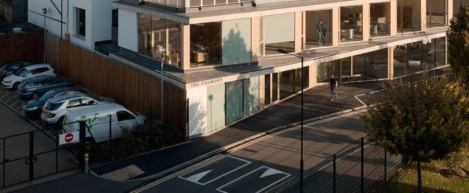April 15, 2016
Office demand prompts rise in level of London commercial construction 0
 London has reached the highest level of commercial construction since 2008, with activity totalling £7.4 billion. According to JLL and Glenigan’s latest UK Commercial Construction Index the level of speculative office development under construction in Central London totalled 8.3 million sq ft at the end of Q1 2016, well ahead of the long term average (5 million sq ft) indicating that developers are continuing to respond to London’s burgeoning requirements for new office floor space. In the West End office market alone, construction started speculatively on nine schemes in the first quarter of this year totalling 596,997 sq ft; the highest level of commencements since the end of 2014. The largest starts were at Brunel, W2 at 241,000 sq ft, which is scheduled to complete in 2019 and The Foundry, W8, a refurbishment planned to complete by the end of this year totalling 110,000 sq ft.
London has reached the highest level of commercial construction since 2008, with activity totalling £7.4 billion. According to JLL and Glenigan’s latest UK Commercial Construction Index the level of speculative office development under construction in Central London totalled 8.3 million sq ft at the end of Q1 2016, well ahead of the long term average (5 million sq ft) indicating that developers are continuing to respond to London’s burgeoning requirements for new office floor space. In the West End office market alone, construction started speculatively on nine schemes in the first quarter of this year totalling 596,997 sq ft; the highest level of commencements since the end of 2014. The largest starts were at Brunel, W2 at 241,000 sq ft, which is scheduled to complete in 2019 and The Foundry, W8, a refurbishment planned to complete by the end of this year totalling 110,000 sq ft.


































April 6, 2016
What Johan Cruyff can teach us about the contemporary workplace 0
by Andrew Brown • Comment, Facilities management, Workplace design
(more…)